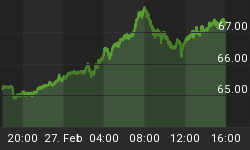A proposal by French president Francois Hollande got me thinking about "The Law of Bad Ideas".
I did a search for the phrase and surprisingly, nothing came up. Thus, I get to define the phrase.
Law of Bad Ideas: Bad ideas don't go away until they have been tried and failed multiple times, and generally not even then.
Key Examples
- Keynesian stimulus
- Monetary stimulus
- Price controls
- Wage controls
- Interest rate controls
- Tax hikes of all sorts
- Tariffs
- Abenomics
That list just scratches the surface.
I tribute this post to Francois Hollande, following his resurrection of the "Robin Hood" Financial Transaction Tax in a meeting yesterday with German chancellor Angela Merkel.
The Financial Times reports France and Germany in Push for 'Robin Hood' Tax Deal.
France and Germany have pledged to reach a deal on a European financial transaction tax by the end of May in a bid to give some impetus to efforts to find accord on the issue.
But the two governments have yet to bridge divisions on how the so-called "Robin Hood" levy would be applied in the 11 EU states that have signed up to implement the tax.
François Hollande, the French president, said after a joint Franco-German government meeting in Paris that trying to find the perfect formula for an FTT would only help those who wanted to neutralise it. "I prefer an imperfect tax to no tax at all," he said at a press conference with Angela Merkel, German chancellor.Merkel, German chancellor.
Ms Merkel said setting a target for agreement on concrete proposals before European parliament elections in May could be decisive. "If things move, certain countries may lose their reticence," she said.
Important Corollaries
Hollande's statement "I Prefer an Imperfect Tax to no Tax at All" gives rise to a couple of important corollaries.
Corollary Number One: Left alone, bad ideas get worse over time.
Corollary Number Two: The overwhelming desire to implement bad ideas leads to compromises guaranteed to make things worse.
Ironically, Hollande's statement came just a couple days after he attempted to persuade businesses he would not kike taxes, but rather Harmonize Taxes in Six Years if Foreign Businesses Invest in France Now
Bad ideas in Europe generally have the endorsement of José Manuel Barroso, European Commission president, and Herman Van Rompuy, head of the European Council.
This proposal fits the same pattern. A September 2011 Bloomberg article show Barroso and Van Rompoy were early adopters of the Financial Transaction Tax.
European Commission President Jose Barroso said the commission today adopted a proposal for introducing a financial-transaction tax. The fiancial sector must make a contribution back to society, Barroso told the European Parliament in Strasbourg, France.
This revelation brings to light corollary number 3.
Corollary Number Three: Those in positions of political power not only have the worst ideas, they also have the means to see those ideas are implemented.
For a rebuttal to the Financial Transaction Tax idea please see my take on Why the Tobin Tax is a Bad Idea
As one might suspect, Paul Krugman is in favor of Taxing the Speculators.
Corollary numbers four and five stem from the obvious influence of those living in academic wonderland.
Corollary Number Four: The worse the idea, the more likely it is to be embraced by academia and political opportunists.
Corollary Number Five: No idea is so bad it cannot be made worse.
Recap
Law of Bad Ideas: Bad ideas don't go away until they have been tried and failed multiple times, and generally not even then.
Corollary One: Left alone, bad ideas get worse over time.
Corollary Two: The overwhelming desire to implement bad ideas leads to compromises guaranteed to make things worse.
Corollary Three: Those in positions of political power not only have the worst ideas, they also have the means to see those ideas are implemented.
Corollary Four: The worse the idea, the more likely it is to be embraced by academia and political opportunists.
Corollary Five: No politically acceptable idea is so bad it cannot be made worse.















